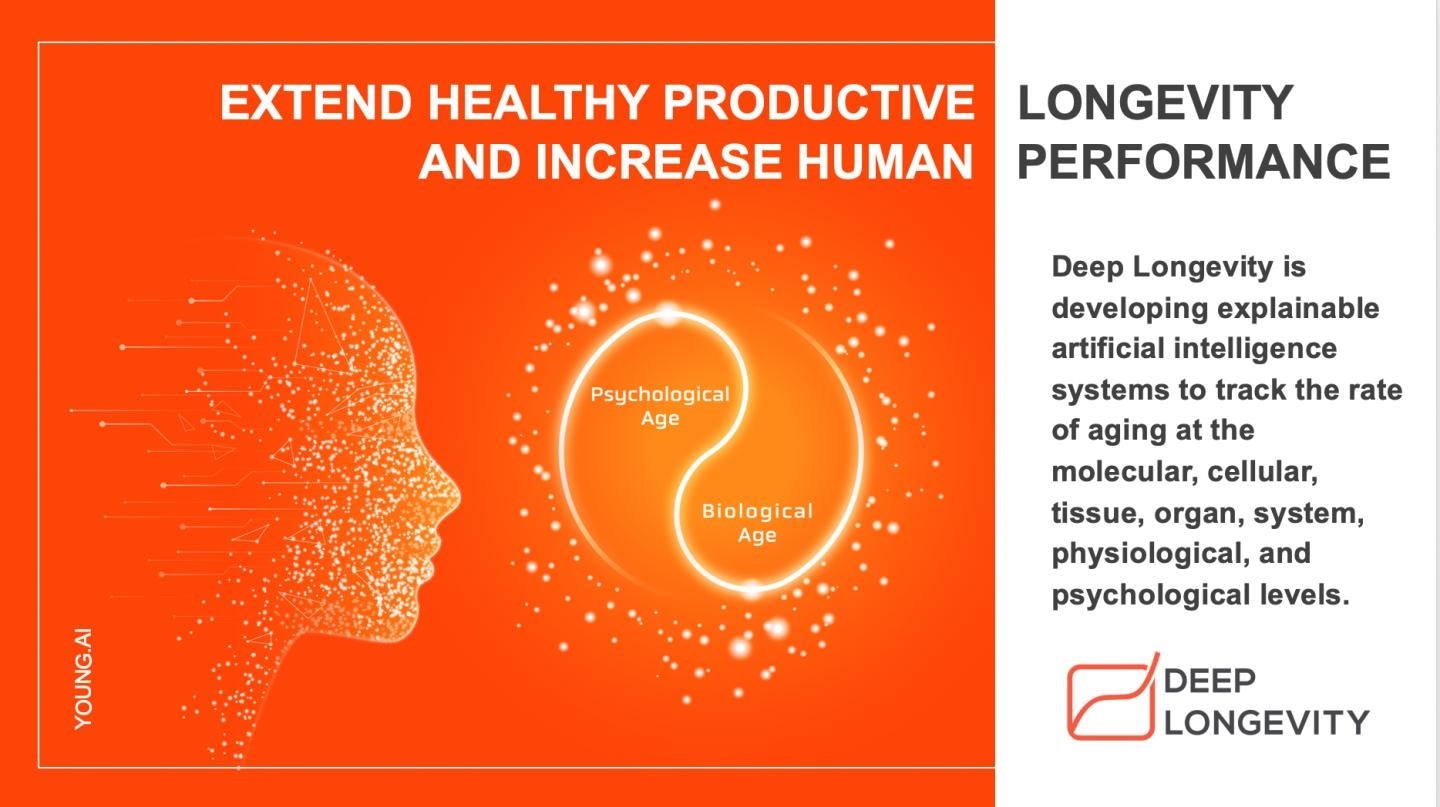Deep Longevity, a firm that specializes in designing artificial intelligence (AI) to monitor human aging and prolong productive longevity, has launched the first AI-powered psychological aging clocks to inspect and decode the psychosocial factors with respect to aging.

Scientists at Deep Longevity published the first set of psychomarkers of aging developed using deep learning to track the changes in human psychology and assess the effectiveness of interventions, life events, and external events. The new PsychoAge and SubjAge aging clocks were linked to mortality risk. Image Credit: Mary Mitina.
Investigators at Deep Longevity scientists, together with Dr Peter Diamandis, the visionary physician, engineer, and entrepreneur, and the founder of the XPRIZE Foundation and Singularity University, have published their study entitled “PsychoAge and SubjAge: Development of Deep Markers of Psychological and Subjective Age Using Artificial Intelligence” in the Aging journal.
Just like other species that follow the traditional evolutionary paradigm, people are born, and they grow, reproduce, look after their young ones, and then slowly decline and die.
But humans are also conscious intelligent species and alter their beliefs, behaviors, attitudes, and priorities throughout their life. Earlier studies on Socioemotional Selectivity Theory (SST) have shown that the horizons of human life can be exploited and can influence their behavior.
Therefore, to gain a deeper understanding of the features that influence psychological age, and perceived age, and also the connection between the mind and body in relation to aging, researchers at Deep Longevity set out to apply their skills to develop deep aging biomarkers to human psychology.
Aging biomarkers, which can precisely measure the process of human aging by employing multiple types of biological data, often known as the “aging clocks”, are among the most significant recent developments in the field of longevity research.
For instance, in November 2020, Deep Longevity team published a similar aging clock built on DNA methylation, which demonstrated excellent performance when compared to all other similar solutions.
In spite of immense advances in aging clock technology, the psychological feature of aging has been largely underexplored. But the latest study on deep psychomarkers of aging is anticipated to considerably speed up the development in the psychology of aging.
The goal of the newly published study is to close this gap by showing two AI-based age predictors—that is, SubjAge (which explains the personal aging rate perception) and PsychoAge (which estimates the chronological age).
Such models were trained on a series of >10,000 questionnaires finished by people aged between 25 and 75 years as a part of the “Midlife in the United States (MIDUS)” study of MacArthur Foundation. Presented in the publication, these models were reworked into 15-question long surveys, which are now available at Young.AI to allow individuals to find out their subjective and psychological age estimates.
The authors of the research work validated the SubjAge on massive independent datasets to identify that higher SubjAge is highly predictive of all-cause mortality. To be more precise, individuals whose SubjAge is five years more than the chronological age reported by them are twice as likely to die as an individual with a normal perception of age.
The team further demonstrated how SubjAge can be exploited therapeutically to make patients feel younger and therefore decrease their risk of mortality. For instance, developing openness to new experiences may decrease the prediction of SubjAge by as much as seven years.
Raising the bar high, being productive and not backing off from hard-to-reach targets will reduce a person’s psychological aging clock by another four years.
For the first time, AI can predict human psychological and subjective age and help identify the possible interventions that can be applied in order to help people feel and behave younger.”
Alex Zhavoronkov, PhD, Study Co-Author and Founder, Deep Longevity
Zhavoronkov, who is also the CLO of Deep Longevity, continued, “One's mindset may determine the decisions that ultimately affect their overall health. By identifying the psychosocial variables that underpin particular mindsets and behaviors, deep psychological clocks can serve as a powerful tool in promoting personal improvement, mental health, wellness, and a wide range of other health and therapeutic applications.”
In follow-up research on psychological aging, Deep Longevity intends to study the variations in aging perception between men and women, analyze psychosocial markers linked to mental health, and create an integrated model of mental-physical health crosstalk.
Source:
Journal reference:
Zhavoronkov, A., et al. (2020) PsychoAge and SubjAge: development of deep markers of psychological and subjective age using artificial intelligence. Aging. doi.org/10.18632/aging.202344.